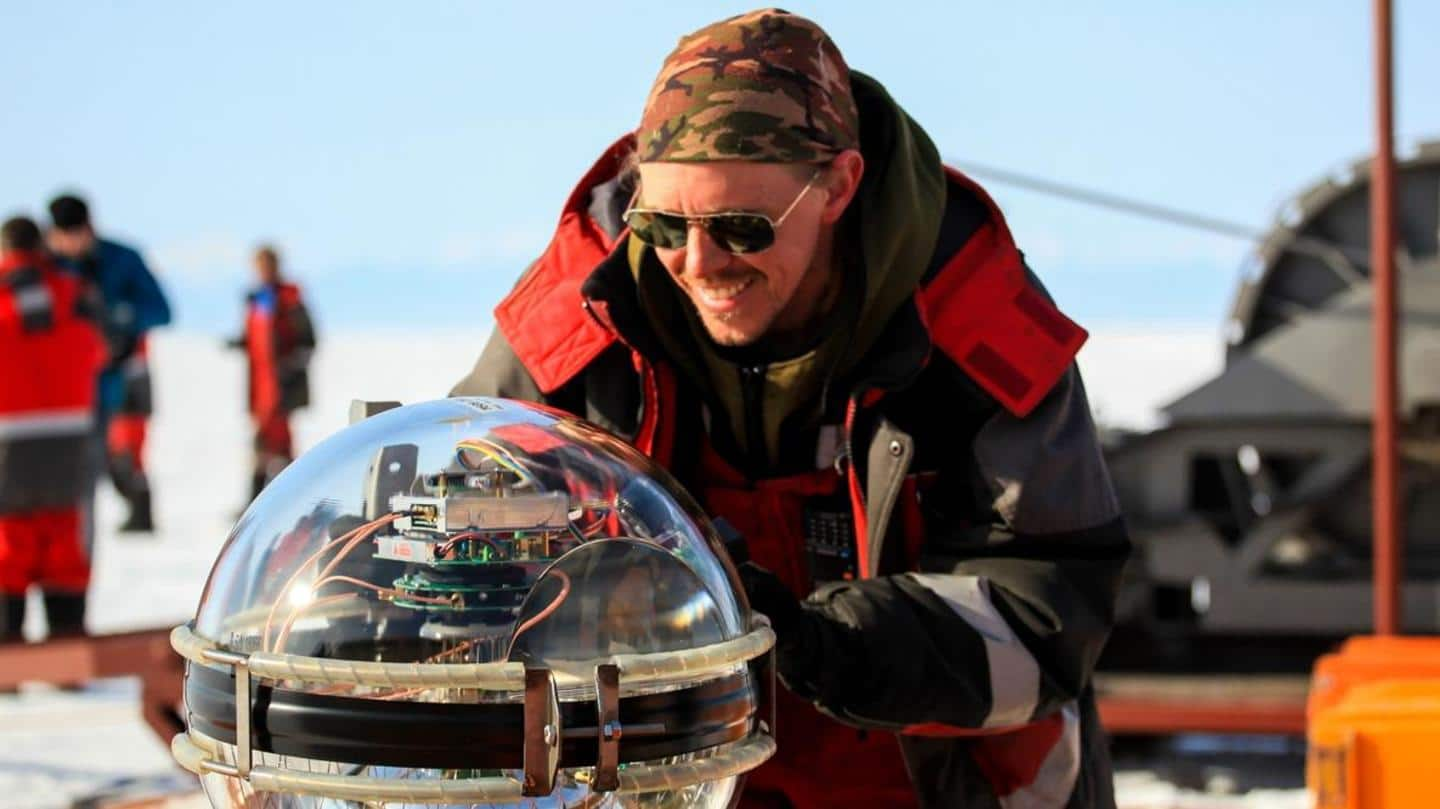
Russia submerges giant telescope in Lake Baikal to study universe
What's the story
Russia has kicked its neutrino research endeavor into high gear by introducing a series of sophisticated sensors deep into Lake Baikal over the weekend. These sensors have been submerged between 2,500 and 4,300 feet within the lake and collectively form the Baikal-Gigaton Volume Detector (GVD). The space telescope is deliberately submerged deep underwater in order to study the smallest particles in the universe: neutrinos.
Elusive particles
Baikal-GVD peers into space for neutrinos through frozen lens
The Baikal-GVD is the world's largest underwater telescope in the northern hemisphere. This sort of a setup is critical to study neutrinos since they are incredibly difficult to detect owing to their propensity to travel great distances without interacting much with the matter around them. Their elusive nature combined with their abundance makes them a prime candidate for unravelling the secrets of the universe.
Cosmic Legos
Modular neutrino observatory will double in size over time
The Baikal-GVD started in 2015 as a joint project between Russia, Poland, Czech Republic, Slovakia, and Germany. The neutrino telescope measures half a cubic kilometer and will further expand to one cubic kilometer to rival the Ice Cube, which is a similar neutrino telescope at a US research station located in the South Pole.
Leveraging nature
Frozen surface of freshwater bodies acts like a natural lens
The modular observatory contains spherical glass with stainless steel modules attached. This network of modules is interconnected with cables, which makes increasing capacity relatively easier. Such neutrino observatories are submerged in frozen freshwater bodies primarily due to the clarity of the water and also because the ice layer makes for a natural lens that keeps the water still and free of contaminants.
Chasing neutrinos
Lake Baikal strikes a good balance between accessibility and opportunity
There aren't too many places in the world conducive for this type of research, and Lake Baikal is one of the rare places that strikes a fair balance between utility and convenience despite being frozen only for two months a year. Although the perennially frozen nature of Antarctica makes it perfect for neutrino observatories, it is significantly less accessible compared to Lake Baikal.